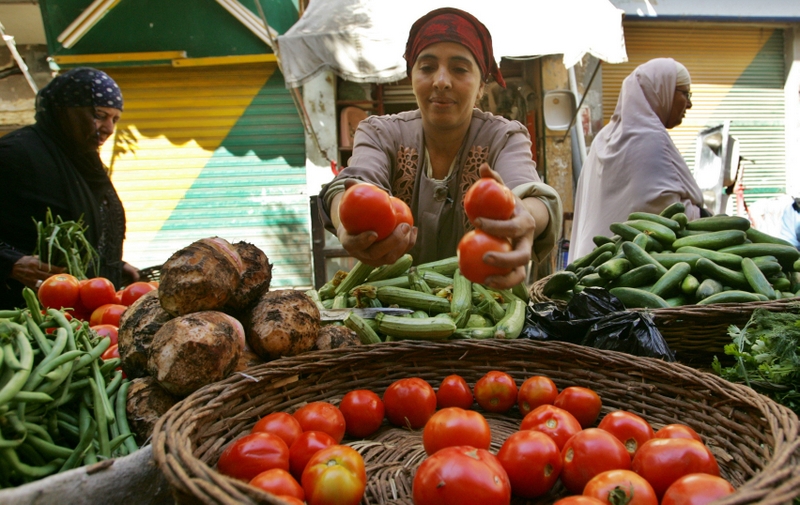The Annual inflation rose to 12.2% by the end of January 2019, up from 11.1% at the end of December 2018, to mark an increase of 1.1%, according to the Central Agency for Public Mobilisation and Statistics (CAPMAS).
In a monthly report on inflation released on Sunday, the CAPMAS said that the general consumer price index reached 298.8 points in January 2019, with an increase of 0.8%, a jump after a decline of 4.1% in December 2018.
According to the CAPMAS, this increase in the monthly inflation rate during January 2019 was driven by higher prices of vegetables by 3.9%, and grain and bread prices by 1.8%.
This comes at a time when the Monetary Policy Committee (MPC) of the Central Bank of Egypt (CBE) will hold its first meeting in 2019 in order to discuss the fate of interest rates, which is the most important indicator on the direction of the interest rates on the Egyptian pound in the local market.
In a poll conducted by Daily News Egypt at the end of January 2019, analysts and bankers stated that there are mixed factors which will determine the fate of interest rates this year.
Analysts forecast that interest rates’ stability will last until the second half (H2) of 2019, then will move down by 2-4%.
Noteworthy, the MPC of the CBE will hold eight meetings this year, on 14 February, 28 March, 23 May, 11 July, 22 August, 26 September, 14 November, and 16 December.
Moreover, the basic interest rate at the CBE is now at 16.75% for deposit, 17.75% for lending, and 17.25% for credit, debit, and open transactions.
Analysts also forecast that inflation will be at 10-14%, while some expect that it will increase up to 17.8%.
In December 2018, the CBE said it eyes inflation of 9% ± 3%, which puts it to 6-12% by the end of the fourth quarter (Q4) of 2020.
In May 2018, the CBE said it is targeting an inflation of 13% ±3% (10-16%) in Q4 of 2018, which was realised when the inflation at the end of that year settled at 12%, and 8.3% for core inflation.
According to CBE, the target was hit in May 2018 when headline annual inflation recorded an average of 15.1% in Q4 of the year.
Haitham Abdel Fattah, the head of the treasury and financial markets at the Industrial Development Bank, said that the recent economic developments indicate that the CBE is likely to gradually cut the interest rates.
He expected that the commodities will not see any significant price changes during H1 of this year, except for oil and electricity. He pointed out that the change in the price of fuel and electricity will not drive inflation in large percentages, where the increase is expected to move between 1-3%.
David Lipton, the first deputy managing director of the International Monetary Fund (IMF), said that despite the recent rise in core inflation, which resulted from temporary increases in food and energy prices, the stance of tightening monetary policy helped to reverse that increase and keep inflation at stable levels.
The IMF believes that the MPC’s vision is based in the medium term on reaching single digit inflation rates.
Furthermore, the IMF stated in its report that the recent rises in inflation were caused by temporary increases in food and energy prices, but tightening the monetary policy helped to lower prices and maintained a good control over the core inflation rate.
On the other hand, HC Securities and Investment (HC) expected another cut in subsidy by July 2019, which may result in renewed inflationary pressures.
The report indicated that those expectations, in addition to the rise in the global interest rate, support the postponement of the resumption of the monetary easing policy to 2020, projecting a reduction of interest rate by 500 basis points.
“We remain optimistic about the future performance of the Egyptian economy, and we believe that significant reforms have been achieved, which led to a reduction in the current account deficit, and could lead to a break-even point in the fiscal year 2020/21,” according to HC.
The company added that after the resumption of the monetary easing policy which is expected in 2020, they foresee that private investment will be the main driver of economic growth, and believe that the moderation of inflation, coupled with increased employment, will support improved personal consumption.


